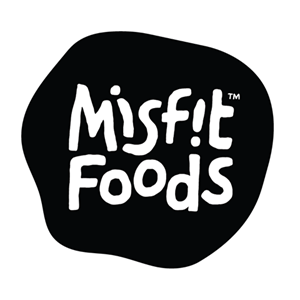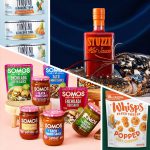Blended Meat Products Hunt for the Best Marketing Approach
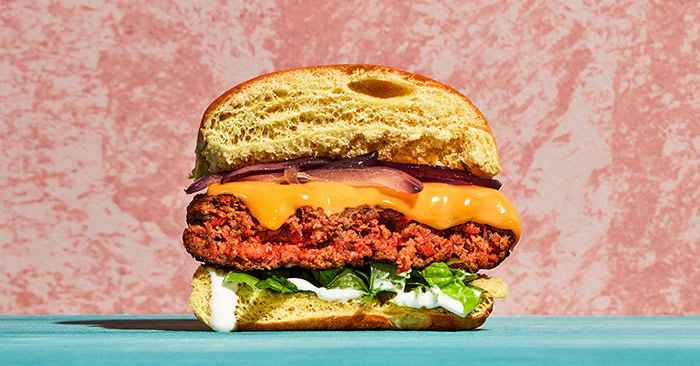
Meat companies have been racing to find ways to satisfy the growing trend towards flexitarian eating. As the market has flooded with meat analogs, a middle ground alternative has also emerged: Burgers and sausages made with meat and veggies blended together. While the segment still remains small, these products have the opportunity to offer consumers the same flavor and texture of conventional meats with many of the better-for-you and the environmental bona fides that consumers are shopping for.
Companies making the blended products have wrestled with the best marketing strategies to reach these consumers jostling between messaging about sustainability, health or simply the flavor merits of eating more veggies. For the bigger players the goal is to diversify their portfolios in the alternative protein space, but for the smaller blended meat brands the middle ground is the sweet spot.
Results are still mixed and hard to tease out amidst a growing wave of launches of plant-based protein brands, veggie burgers, and more. But there’s still reason to believe that the blended approach could pay off. Data provided to Hormel from market research firm Mintel’s October 2021 “Hybrid Meat + Plant Products Report” stated that “plant-based claims on food launches increased 20% versus the prior year and almost a quarter of consumers are interested in adding veggies to red meat products.”
Big Meat’s Hedge Into Blended Products
While some large meat companies such as Maple Leaf Foods and JBS have opted to focus on fully plant-based protein alternatives, other large meat packers have instead looked to blended products as a way to experiment with omnivore eating. While it would seem to be a smaller leap, the hedge into the plant-based meat category has so far had only limited success, and at least one large company has signaled a retreat.
Hormel’s Applegate Farms brand targeted sustainability-minded consumers with the 2020 release of grass-fed beef and vegetable patties that replaced some ground meat with cauliflower, spinach, lentils and butternut squash. According to Nielsen IQ Discover data provided by Applegate Farms, Well Carved Burgers’ dollar sales grew 22% over the last 26 weeks ending on August 27 versus the prior period. Yet, ongoing supply chain and sourcing complexities forced the brand to discontinue the Well Carved Meatballs in June, reported Moy Aras, Applegate brand manager.
“While consumer interest remains high and Applegate specifically has received positive feedback on our Well Carved products, the category is still very new and its ability to be broadly appealing to a large audience is still to be determined,” Moy wrote in response to questions from NOSH.
When Tyson unveiled its Raised and Rooted branded products in 2019, the frozen line included blended meat and veggie items. After seeing mixed results, the Arkansas-based meat giant pivoted the brand in late 2020 to a completely plant-based product line, sending the industry a message that there was more opportunity in the fully alternative meat category.
During the company’s Q1 2021 earnings call, then CEO and president Samuel Dean Banks responded to a question about the company’s focus in producing more non-meat protein products by saying that plant-based “brings another customer to that freezer aisle and complements our business. And so, it was a very thoughtful approach. And you will see more of that to come.”
Some brands have found success though. Perdue has held steady behind its Chicken Plus blended nuggets, tenders and patties, which also launched in June 2019.
At the time of its release Perdue chief marketing officer Eric Christianson said, “by blending plants and vegetables with the Perdue chicken families love…we are appealing to the growing number of flexitarian families who have an increased commitment to getting more plants and vegetables in their families’ diets.”
Messaging Is Key To Breaking Through To New Consumers
Positioning these products can be just as tricky as nailing the taste, but many brands thus far have leaned on a healthier eating angle, specifically targeting families and children.
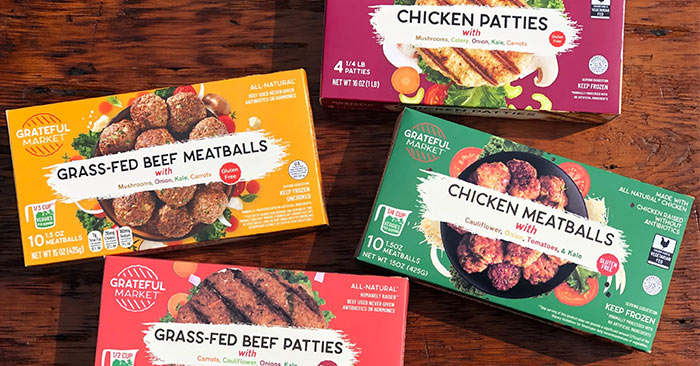
Chef Christopher Nessen founded his blended meat company Grateful Market in 2015 as a strictly foodservice brand. High beef prices at the time were forcing chefs to blend vegetables like mushrooms into ground beef to stretch their product further, so Nessen originally planned to market the line as a cost saving measure.
As plant-based eating moved from a vegetarian or vegan trend and into the mainstream, the Beverly, Massachusetts-brand found that there was an opportunity to offer families a healthier alternative to conventional meat-eating.
Grateful’s most popular product, Chicken Patties, retail at $8.99 for a 4-pack. Currently, the company is in over 700 retail stores, with East Coast distribution in Whole Foods and a new national partnership with Sprouts Farmers Market starting this month.
While its pricing has remained a key aspect of its marketing strategy, the company has found that its products resonate with parents trying to get their children to eat more vegetables without sacrificing flavor. Like Perdue’s Chicken Plus line, Grateful puts its vegetable content on the front label.
“It’s a health thing,” Nessen said. ”We push the sustainability side to a point but I don’t know if it’s resonating as much as the health side with our consumers.”
Even brands that started off with an environmental or upcycled focus have come around to health and flavor.
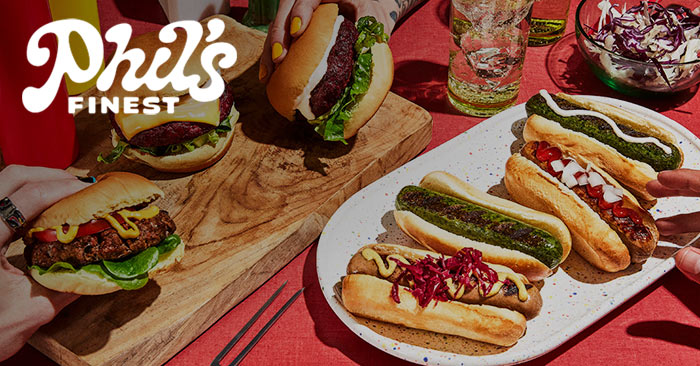
“There really hasn’t been that much innovation in ground meat in the grocery store in the last 10 to 15 years,” said Phil Wong, founder of Phil’s Finest (formerly known as Misfit Foods), explaining why he started launching his blended sausages and ground meats. The original intent when Wong launched the brand was two pronged, both to change how consumers ate meat and to use imperfect or “ugly” produce (the company’s original products were juices made from that produce). Since then, the brand has dropped the food waste angle, instead developing messaging around sustainability, flavor and nutrition benefits.
“That is different from the reasons why consumers buy our product, and I’m perfectly fine with that. I’m actually pretty psyched about it,” Wong said.
Other companies are leaning in on flavor. Teton Waters Ranch had already built their nationally-distributed brand on its sustainability-based model, which includes regenerative agriculture and grass-fed farming. So with sustainability already part of the Colorado-based brand’s DNA, a line of blended products needed to strike the best balance for its consumers – while not straying too far from its core product.
“We’ve kind of found that sweet spot. People still really want a great tasting burger, and we feel like we can provide that with our blended products,” said Amanda Duran, Teton Waters Ranch’s chief financial officer. “At the end of the day, we’re selling a burger. We’re plant-forward by adding mushrooms, but we are a beef company.”
While emphasizing the nutritional benefits of eating grass-fed beef, Teton’s Burger Blends also focus on the difference in taste when vegetables are incorporated into the mix. By utilizing the umami flavor of mushrooms, the brand can appeal to consumers who are still looking for a ground beef burger, but want to reduce their meat consumption. The company, which already has three varieties of the mushroom-added meat, is adding new SKUs in 2023.
On the merchandising front, blended may have an advantage. While plant-based proteins often find themselves relegated to specific sets, companies have found that blended products are an easier pitch to gatekeepers in the meat department. Duran’s experience working for four years at Beyond Meat showed her just how important slotting can be when convincing shoppers to make more environmentally friendly decisions.
“Consumers are coming to the grass-fed category,” Duran said. “We want to be merchandised where consumers are shopping for protein. We want to be merchandised in that meat section.”
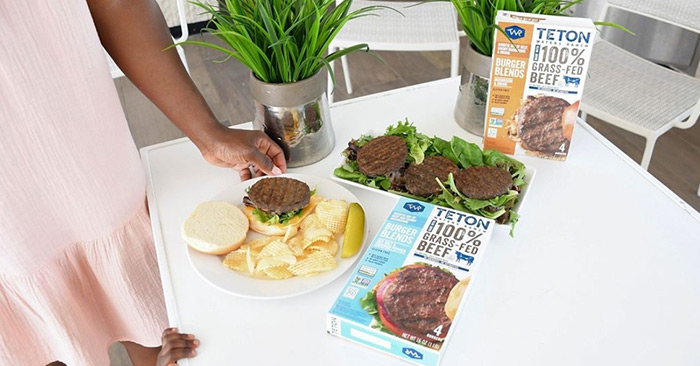
Teton sees a lot of opportunity for growth in consumers who are both looking for a better-for-you meat option that also hits an environmentally sustainable subsection as well, Duran explained. “We’re kind of at the tip of the spear where we can address both subsets of that consumer base and really provide what they’re looking for.”
Investors Balancing Industry Disruption With Returns
If merchandising is a sweet spot, investment has thus far been sour. Huge funding announcements for companies producing plant-based proteins or using cellular agriculture has become commonplace. But finding investment for a blended product can be somewhat more difficult, with mission-focused investors in the alternative meat space hesitant to fund a product that still contains meat.
Phil Wong thinks this is doing a disservice to the environmental impact message of blended meats.
“If we take one-third of hamburgers off our plates, that’s two million cars off the road and I don’t think the planet really cares whether that change is coming from omnivores or from vegetarian or vegan products,” he said.
Alternative protein nonprofit The Good Food Institute’s “State of Industry Report: Plant-Based Meat, Seafood, Eggs and Dairy” reported that global retail sales of plant-based meat passed the $5 billion mark in 2021 worldwide and show continued signs of growing.
At the same time, for more traditional CPG investors, burgers and sausages made by blending vegetables into the meat is a safe bet on the viability of alternative proteins. The valuations and cost to invest are also often more approachable than plant-based meats.
Sunrise Strategic Partners, for example, has three investments in the regenerative agriculture space: Vital Farms, Maple Hill Creamery and Teton Waters Ranch. Sunrise co-founder and managing partner Vincent Love told NOSH that there has been a lot of focus on plant-based meat alternatives and not enough focus on traditional grass-fed products, which are disruptive in their own way – cutting into corn-based feedlot cattle, a practice that is considered by most experts to be more damaging to the ecosystem.
He believes the way to address the environmental and health impacts of the meat industry is by investing in companies that are giving “consumers the products that they love and do[ing] it in a way that’s better for the animals, better for the consumers and better for the environment.”
“If they’re going to eat beef products, how do we give them a better beef product?” he said. “For us, as an investor, it’s looking through the lens of what problem are you helping try to solve. In this case, it’s the industrialization of the food system.”

